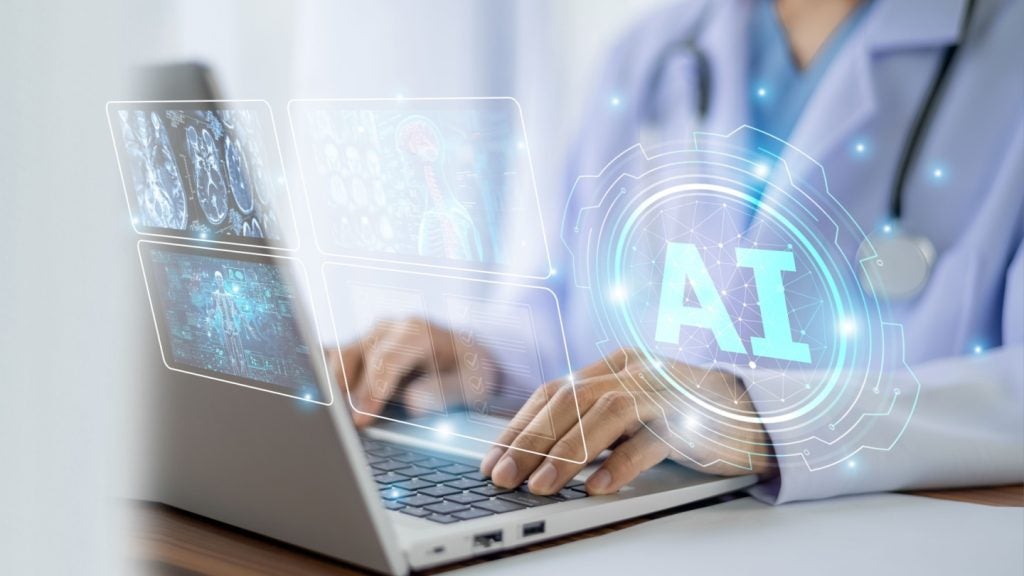
A report published by the House of Lords Select Committee that urges the UK Government to develop artificial intelligence (AI) ethically and fairly also encourages the NHS to take advantage of the ‘impressive advances in AI for healthcare’ to improve clinical and administrative services.
The report, ‘AI in the UK: ready, willing and able?’ quotes the Royal College of Radiologists, which argues that ‘medical imaging is perfectly placed to benefit from advances in AI’. The college refers to imaging for breast cancer screening, where one in every two human screen readers could be replaced by AI, helping to expedite a process which currently screens 55 patients per hour, a total of two million per year.
Following the withdrawal of several expensive treatments, including breast cancer, from the Cancer Drugs Fund (CDF) in 2015, and staffing shortages named in the Lords’ report, many NHS trusts could benefit from more widespread use of AI.
However, the report also refers to the financial difficulties of implementing AI across the NHS when the service is already on track to face a £30 billion funding gap by 2020.
“Organisations within the NHS are under great financial pressure,” said the Centre for Health Economics at the University of York in the report.
“Developments like the adoption of AI are investments which require resources. Diverting resources away from front-line services is increasingly difficult when resources are limited and demand for services is increasing.”
How well do you really know your competitors?
Access the most comprehensive Company Profiles on the market, powered by GlobalData. Save hours of research. Gain competitive edge.

Thank you!
Your download email will arrive shortly
Not ready to buy yet? Download a free sample
We are confident about the unique quality of our Company Profiles. However, we want you to make the most beneficial decision for your business, so we offer a free sample that you can download by submitting the below form
By GlobalDataThe report further suggests that the wealth of data the NHS holds on British patients could be of financial benefit to the service. IBM acquired Merge Healthcare in 2015 for $1 billion, gaining data on five to six million patients, and the Royal Society estimates that public sector data in the UK could be directly worth as much as £1.8 billion. NHS data could also be provided to AI developers in exchange for access to their products.
British AI company DeepMind, which has already developed AI software for the NHS to diagnose eye diseases, said that ‘the NHS should be recompensed when it makes data available to companies for the purposes of AI development’.
There are ethical and logistical problems with this use of patient data, however. The report refers to the ‘Royal Free Hospital/DeepMind fiasco’ of 2015, where the Royal Free Hospital provided data on 1.6 million patients to help the software developers produce an app called Streams to help diagnose acute kidney industry. The Information Commissioner’s Office ruled that the hospital had failed to comply with the 1998 Data Protection Act, and some are wary of a similar failure having a more significant impact if AI is involved.
Dr Julian Huppert, Chair of the Independent Review Panel for DeepMind Health, also said that the internal structure of the NHS does not lend itself to sharing or selling data on the level of Merge Healthcare.
“The public tend to believe that the NHS is one institute which has all the data in one place,” he said.
There are “real problems with data storage, availability and flow throughout the NHS at pretty much every level. It is very much in silos at the moment.”
Caldicott Guardians, senior officials responsible for protecting the confidentiality of patient data, have been mandatory at all NHS organisations since 1999. While they are nominally responsible for protecting data, ‘the role has no statutory basis, and is mostly advisory in nature’, according to the report, suggesting there is no clear authority on patient data, and how it can be best used for the service as a while.
Ultimately, a decision must be taken with the interests and support of the public at their centre, according to National Data Guardian Dame Fiona Caldicott.
“What we have not done is take the public with us in these discussions, and we really need their views,” she said.
“What is the value? Are they happy for their data to be used when it is anonymised for the purposes we have described? We need to have the public with us on it, otherwise they will be upset that they do not know what is happening to their data and be unwilling to share it with the people to whom they turn for care.
“That is the last thing we want to happen in our health service.”







